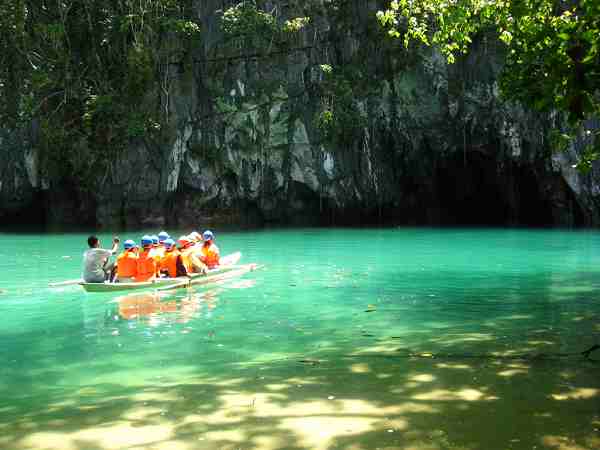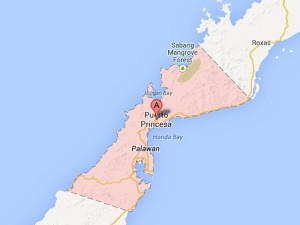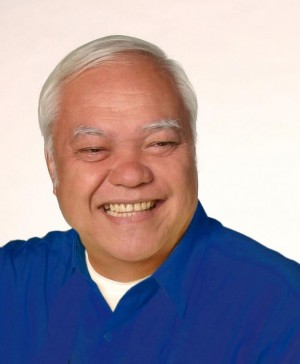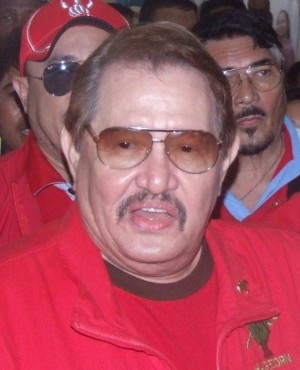Election 2016: Agenda of the Puerto Princesa City mayor
The INQUIRER is coming out today with the 18th of its series on pressing people’s concerns that should be high on the agenda of candidates for representative, governor or mayor in the May 9 elections. The series should help voters in the provinces choose their leaders wisely. In line with our “ThINQ. Vote.” advocacy, we have asked candidates in certain provinces, cities and congressional districts to outline their concrete plans of action in dealing with specific issues in their areas.
Profile: Puerto Princesa City
Puerto Princesa City, the capital of the country’s last frontier, Palawan province, has earned the distinction of being one of the model cities in the country—in cleanliness, environmental protection and conservation, and local governance.
Puerto Princesa was named after Princess Asunción, born in 1864 to Queen Isabella II and her consort, Francisco de Cádiz.
Article continues after this advertisementSpanish colonizers founded the settlement on March 4, 1872. In 1894, Puerto Princesa was recognized by government authorities as one of the most beautiful towns in the country by virtue of the orderly distribution of streets, buildings and houses as well as the cleanliness of the community.
Article continues after this advertisementPopulation (2010): 226,673
Registered Voters (2010): 135,417
Land area: 253,982 hectares
Municipal waters: 321,085 ha
Barangays: 66
Coastline length: 416 km
Major industries: Fisheries, Agriculture and Tourism
Classification: Highly urbanized (administratively independent of Palawan province)
CONCERN 1: ENERGY
COAL-FIRED PLANT. There has been a much publicized issue concerning the construction of a coal-fired power plant in Palawan, with opposition coming from local communities and environment groups. What is your position on this issue and how would you address Puerto Princesa City’s need for power and energy?
Lucilo R. Bayron, Nationalist People’s Coalition
We say no to a coal-fired power plant in Puerto Princesa. There is limitless supply of renewable energy around for it to be necessary and that’s the kind of energy source we are earnestly pursuing… We have established partnerships for solar, mini-hydro and waste-to-energy projects.
Edward S. Hagedorn, Liberal Party
I have always expressed my opposition to a coal-fired power plant and other pollutive industries. This is the reason why I encouraged and allowed the development of the Langogan mini-hydro plant and the establishment of a solar power project in Sabang, Barangay Cabayugan.
CONCERN 2: MINING
MINING AND ENVIRONMENT. There is a major debate about allowing continued mining in Palawan, considering its negative impact on the environment. What is your stand on this in relation to your platform about the environment?
Bayron
As long as I am mayor of Puerto Princesa City, I will not allow large-scale mining here. I will allow only small-scale ones, such as quarrying, to support the local construction industry.
Hagedorn
“No to Mining in Palawan” is our battle cry, not just in Puerto Princesa City, where I had long drawn the line against extractive industries … . The impact of environmental abuse has no political boundaries. It’s also my advocacy as an environmentalist.
CONCERN 3: POVERTY
THE POOR AMID RICH RESOURCES. Despite Palawan’s extraordinarily rich resources—natural gas, mineral and tourist attractions—its residents remain poor, with over 80 percent of the population considered to be below the poverty line. Where does the problem lie and what would you do to address this?
Bayron
Among all the highly urbanized cities in Luzon, Puerto Princesa registered the highest poverty incidence at 15.5 percent. To address this, we are giving our farmers and fishermen support and incentives like:
Farm-to-market roads.
The Irawan Integrated Agricultural Complex will house the Agri-Pinoy Trading Center, a modern coconut processing hub and a cashew processing center.
Tractor pool.
Hagedorn
It is admittedly difficult to balance development, as we traditionally understand the term, and environmental protection… .
We have shown that environment friendly economic models, such as ecotourism development and promotion, provide sustainable livelihood opportunities that cut across all economic levels.
(Interviews by Redempto D. Anda)



